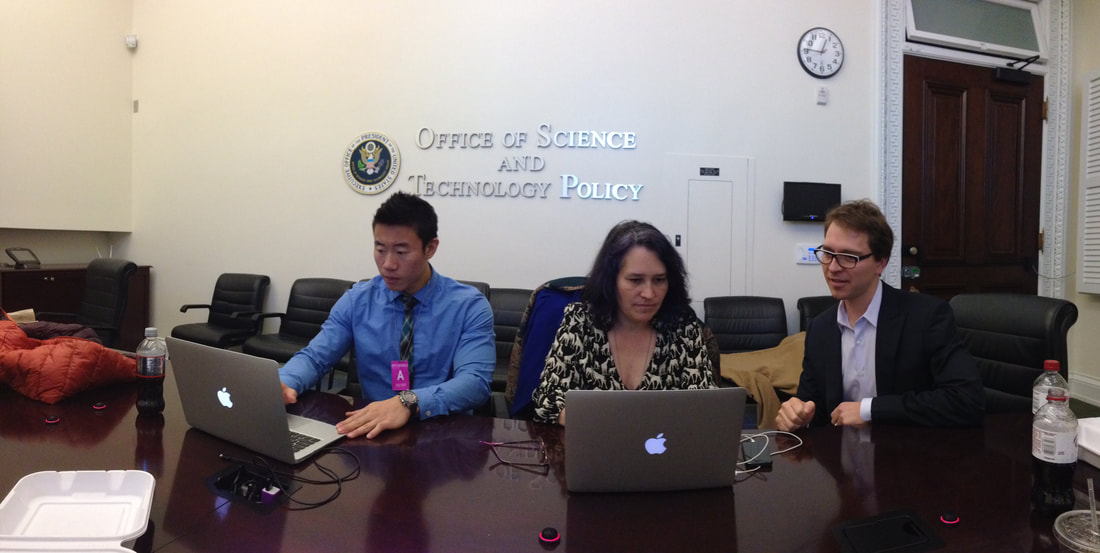 It’s the setup for a bad joke: What do you do when you see two Asian men at an airport gate? Call for an evacuation. That’s what happened in early September 2019 at Newark Airport after an Alaska Airlines flight attendant sounded an emergency alarm. Hundreds of screaming travelers sprinted through the terminal and crashed through glass in hopes of getting to safety. One person who was there called it “absolute chaos” and the “most terrifying few minutes of my life”. The allegedly security threat at the center of this chaos? Han Han Xue and Chunyi Luo, two complete strangers who happened to be standing near each other while waiting to board a flight to San Francisco, and were later found to have done nothing wrong. Dozens of officers arrived on the scene and eventually found and questioned the two men before releasing them without any charges.Meanwhile, hundreds of passengers had their travel plans disrupted and everyone had to go back through security. Many people including Xue and Luo missed their flights and had to stay overnight to catch one the next day. Not to mention the psychological impact of such a fear-inducing incident. Newark is the 6th busiest airport in the nation by international traffic with tens of millions of passengers passing through its halls each year. Efficiency and safety are presumably high priorities for anyone who works there. How did this happen? Breaking Down a Racist EncounterAs reported in BuzzFeed News, the Alaska Airlines flight attendant first made contact with the men when she walked into Xue, a 29 year designer at the tech company Lyft, from behind. She then circling back on both Xue and Luo, a 20 year old college student, and asked if they were “scared” and wanted to know why they were “acting suspiciously”. She then asked Xue if the two men knew each other (they had never met) and wanted to know if an unnamed “they” was paying him or had given him or his family a visa. A few unanswered questions I have:
The flight attendant then confers with a gate agent who announces boarding would be paused. But then, rather than have security directly question these men, she suddenly hits the emergency alarm button and starts screaming for an evacuation. That’s when all 200 passengers started running, including Xue and Luo. Dozens of officers arrived on the scene and eventually found and questioned the two men before releasing them without any charges. If there was any justifiable explanation for why these men were seen as a threat beyond simply their ethnicity, it would have been shared with the press as rationale for this harrowing and expensive incident. The only thing we’ve heard is that she is bipolar and had an issue with her medication. Which raises the question of whether this person should be in a different line of work. Ultimately the mental instability defense is a flimsy shield for the truth: she held an unjustifiable bias against people of Asian descent. The impact of racism in America isn’t merely a result of those who actively harbor and act on their prejudiced beliefs, but everyone who enable them. Alaska Airlines is based in Seattle, a city that has 14% Asian population. None of the other travelers or crew members saw any issue with two Asian men standing next to each other, and yet they allowed one woman’s racism to upend the travel schedules of hundreds of people. Asian Are Still Outsiders to American SocietyWhat happened in Newark is not an isolated incident. It is part of this country’s frequent “othering” of Asian Americans, something experienced by even our most visible members. In her 2016 Senate campaign, then Rep. Tammy Duckworth (D-IL) highlighted her family’s history of military service during a televised debate. Duckworth’s mother is Thai and her father, who was white, served in the US Marine Corps. Kirk’s response was to deny Duckworth’s claim to her father’s heritage. “I had forgotten that your parents came all the way from Thailand to serve George Washington”. Democratic Presidential contender Andrew Yang was told he should “go back to China or wherever he came from” by a right-wing radio host and called a “Jew chink” by comedian Shane Gillis (who SNL briefly hired with the hope of appealing to conservative viewers). Yang, who has been in all 5 of the Democratic Presidential debates, was born in Schenectady, New York to Taiwanese immigrants. Like Xue, I was born in China, but grew up in and became a citizen of a North American nation (Xue is Canadian, I’m American). I remember being asked frequently as a child if I was related to any Asian friends or classmates because we “look so similar”. Like many, I have heard and answered the question “where are you really from” far too many times. My research on Asian American men has found that 70% of men reported regularly hearing people say there were “too many Asians” in a particular place and 86% regularly have someone attempt to guess their identity. These kind of experiences tell us that we are still not an accepted part of American society. The Danger of Being Othered and China’s AscensionFor many Asian Americans, especially those who live in ethnic enclaves, have darker complexion, or are of Muslim, Hindu, or Sikh faith, this is, sadly, familiar ground. Hate crimes against these communities have been rising for the last few years. But it stretches much farther back. At the turn of the century, Asian Law Journal published an article titled “Hate Violence as Border Patrol” that began like this: “Violence has been an integral part of the histories and experiences of Asian Americans in the United States from our arrival in this nation to the present. Anti-Asian violence can occur at any given moment, but it is especially prevalent during periods of anti-immigrant sentiment.” We have always been a population under siege, with our most vulnerable members targeted most heavily. Many of us forget, or never even knew, that Asians were the target of the largest mass lynching in the United States. In 1871, a 500 person strong mob entered Los Angeles Chinatown and hung between 18 Chinese immigrants — a public act of mass murder that didn’t result in a single person serving prison time. Race relations have improved somewhat since that time, but the peace is threatened by our current President, who tells elected US officials of color that they should “go back to where they came from” and mocks Japanese and South Korean leaders for their accent. Trump is now blaming China for the US economy’s slowdown and his trade war is fueling the fire of racism and xenophobia that makes anyone who looks potentially East Asian into a target. In his memoir A Chinaman’s Chance, civic educator Eric Liu describes what happens to Chinese Americans as as China becomes the major rival to the United States. “The more powerful China becomes, the more Chinese Americans are perceived as vessels of such power. The more discomfitingly assertive China is, the more Chinese Americans are seen as discomfitingly assertive in their dealings. The more underhanded, the more deceptive, the more inscrutably treacherous China’s moves appear, the more Chinese Americans are assumed to be all these things.” It’s not all bad. Over a recent lunch in San Francisco, I spoke to an Asian American lawyer who believes that China’s rising hard power can create soft power that trickles down to Asian Americans. Many Hollywood movies, for instance, now feature more Chinese cast members and work hard to appeal to the Chinese market. At a projected $11B in gross revenues, Chinese box offices are neck-and-neck with America’s $12B and expected to surpass Hollywood in 2020. That bump in representation may bring some benefits, even as others wring their hands over Chinese censorship. At the same time, that censorship and authoritarian rule drove a great deal of animosity towards China this fall with the continued protests and riots in Hong Kong impacting Americans ranging from the NBA to competitive video gaming. Bottom line: there are a lot of people who are unwilling or unable to separate the Chinese government from Americans of Asian descent. We cannot simply wait out the bigots or hope that they don’t bother us — we have to act. Why We Have to Wake Up and RespondIn 2019, an airport employee can call two completely innocent Asian men a security threat in a major airport and trigger panic among hundreds of travelers with little to no repercussions. That fact alone needs to be a wake up call for Asian Americans, especially the well-paid, well-educated professionals. The folks like Xue and myself, who may experience little racism day-to-day, who may not fear for our lives when we’re pulled over by the police, and who may not feel at risk for an ICE raid. The folks like the woman Rep-NJ (D) Andy Kim spoke to prior to his election, who expressed excitement about his campaign, but then said unapologetically that she wasn’t registered to vote and wasn’t “political”. Asian Americans are less likely to vote, donate, and run for office compared to other ethnic groups. We’re often taught to keep our heads down and stay out of the spotlight. Some of us have been privileged enough with our degrees, our good jobs, our homes in “nice” (read: wealthy and white) neighborhoods to avoid the inherent racism boiling in this country. But we must realize that many of our brothers and sisters did not have this option. We must learn to make visible contributions to our communities and stand in solidarity with other marginalized groups, who have suffered and fought for decades to reclaim their fair and rightful place in society. In my youth as a competitive gymnast, I was a proud member of the US junior national team. As an adult, I have worked on major technology initiatives within the federal government. I am saddened and angered to see people who look like me be treated as foreign threats to our country, rather than important contributors to its success. I vote, volunteer, and participate in civic life more than I find comfortable, because I know it’s my responsibility to this nation, and to the Asian Americans who live here. Two centuries after the first wave of Chinese laborers entered the United States, many Americans still see people of Asian descent as dangerous outsiders to this country. We need to reshape that narrative, and do so quickly.
0 Comments
Your comment will be posted after it is approved.
Leave a Reply. |
AuthorThe Asian American Man Study is an annual study an annual survey of the experiences and beliefs of American men of East, Southeast, and South Asian descent. It is administered by Jason Shen, a first-generation Chinese-American. Archives
March 2019
Categories |
The Asian American Man Study
Copyright © 2015-2019
Copyright © 2015-2019


 RSS Feed
RSS Feed